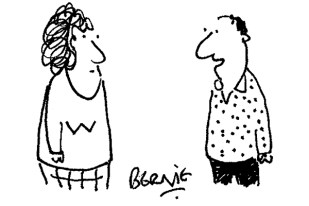Is it safe to visit the continent? On the one hand, abroad is likely to be less crowded this August than in normal years. As for the virus, if one miscalculated, could that lead to lockdown in France profonde, or dolce far niente Tuscany? Hardly the worst outcome. Or would it mean cancelled flights, hours in airports, and then house arrest back in London? As government ministers do not appear to know the answer, how should the rest of us decide?
While considering the options, I have consoled myself by remembering previous trips, stimulated by some recent tastings. When it comes to claret, I am very much on the left — of the Gironde, that is. Cabernet sauvignon stimulates the intellect as well as making demands on the palate. I always associate merlot with Robert Parker, whose tastebuds seem to be more inspired by fruit than by its harmony with gravel and tannins. Mr Parker has always been a controversial character, which may be partly due to envy. He has not only been the most influential wine critic of all time, he must also be the richest one. He always moves markets, aided by his scoring system. Rating wines at up to 100 (the maximum, obviously) offers a quantitative certainty. Sceptics question the certainty, but it is popular among those trying to sell wines, especially in the Far East.

It also appeals to the psychology of many American wine drinkers. All that arithmetic gives the impression of science plus moral weight. Perish the thought of drinking wine merely for enjoyment. In many parts of the US, puritanism and prohibition still cast a shadow. Drinkers have to keep guilt at bay, and the Parker score-sheets help.
They order these matters better in France. Consider their word for tasting. Degustation is so much more expressive. As you roll those syllables around the palate, you are transported to a wine-growing region. Degustation may have nothing to do with mathematics or puritanism, but it has its own seriousness: the indulgence of taste and the pursuit of pleasure. Nor is French winemaking in any way science–averse. On the contrary: many of its successes in recent decades are the fruit of a partnership between universities and vineyards. There are endless examples. Grand-père made excellent wine, as his forebears had for centuries. But he was really a superior peasant. Son went up in the world; grandson even more so, studying viniculture at university, familarising himself with the best international practices, comfortable in a suit in a bank’s boardroom — but still most comfortable running his hands through his own soil.
Cabernet sauvignon stimulates the intellect as well as making demands on the palate
There is a comparison with Donatello, the most important figure in the early Italian Renaissance. He promoted the evolution of art, but also of the artist’s role. His predecessors were superior artisans. With the encouragement of that magnificent patron Cosimo de’ Medici, he became the first artist, in the romantic sense of that word. French winemaking has undergone a similar development, but there is a problem. Instead of Cosimo de’ Medici, French winemakers have to deal with the Code Napoléon. The more successful they are, the more valuable their vines become, and if there are several heirs among which everything must be divided, that glorious symphony of history and tradition, science and terroir, is under threat. One suspects that Bonaparte himself would have seen the danger, and averted it. Technically, he may have started life in the Corsican nobility, but there was also peasant realism in his bloodline.
His code is now causing problems in Pomerol as well as in Burgundy. Pomerol is a patchwork of tiny holdings, many of which have attained cult status, with small production and supercharged prices. I recently came across an affordable one: a 2010 Fleur de Clinet, a second wine of Château Clinet, though it also uses grapes from other vineyards. It proves that merlot can have structure.






Comments